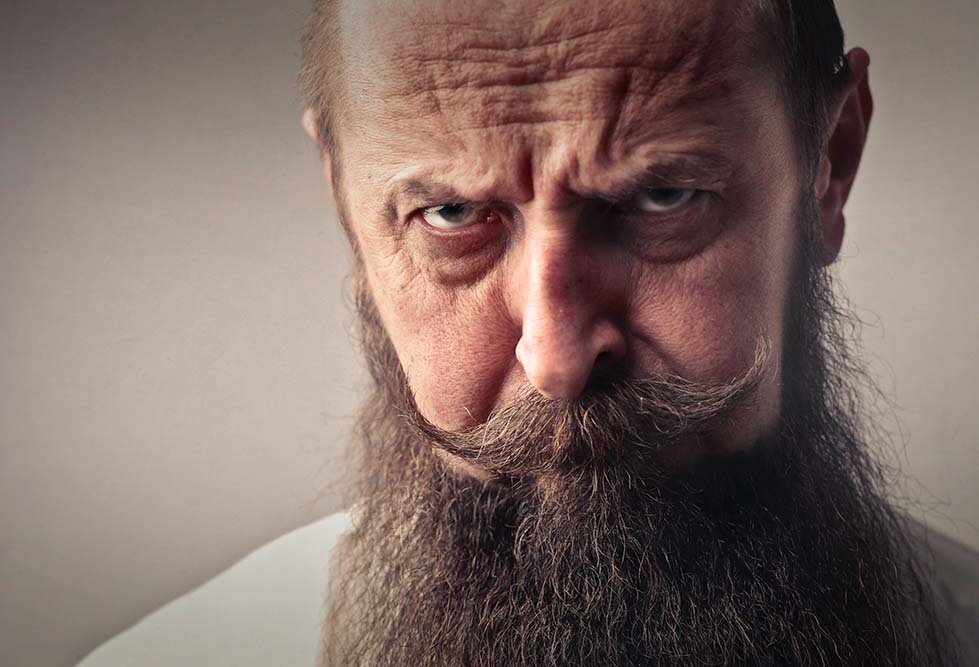Elder Abuse…a Sad and Tragic Reality
As a grandchild who was my Granny’s caregiver for many years, I cannot fathom why anyone would even consider harming an elderly person in any way, shape, or form. But it happens. And sadly, it happens more than you think. Take a look….
- One out of every ten people over the age of sixty have been abused in some form or another.
- The most common form of elder abuse is physical neglect, followed close behind by verbal abuse.
- Almost ninety percent (90%) of all abuse comes from members of the victim’s own family. THIS IS SHAMEFUL!
- Two-thirds of elder abuse victims are women. The reason for this is two-fold. Elderly women are more vulnerable and there are more elderly women than men in the senior citizen population.
- Dementia patients are the most at-risk group for abuse.
- Abuse rates have risen drastically since the pandemic.
- In an anonymous poll taken, RESPECTCAREGIVERS.ORG reports that two out of three caregivers in nursing home facilities admit to inflicting some sort of abuse on a patient or patients.
Again, I cannot even begin to fathom why someone would stoop so low. Yet we see it all the time on the news, online, or hear it from those who have experienced it themselves or have a loved one who has.
Elder abuse is not limited to verbal or physical abuse. When we talk about elder abuse, we are also talking about financial abuse (stealing from a family member or the one you are being paid to care for), scammers scamming elders out of their money and other assets, and emotional abuse in terms of making them feel guilty for needing help and for decreased independence.
The signs and symptoms of elder abuse are usually not hard to miss. There are also more to talk about than we have room for. But for the sake of our precious seniors, I’m going to list several you need to be on the lookout for, from all the different forms of abuse.
Physical
*Bruising, cuts and scrapes, swollen jaw or eye, patches of missing hair, swollen or painful joints beyond the norm.
*Inability to use their hand or arm.
*Constantly apologizing for being slow, clumsy, or a burden or bother.
*Hesitating to speak or answer questions when certain people are in the room.
*Hesitating to speak or answer questions without a certain person present.
*Flinching when someone reaches toward them.
Mental, Verbal, and Emotional
*Apologizes for just about everything.
*Talks down about themselves and wishes they would just go ahead and die.
*Makes excuses for their family members’ actions and choices.
*Refers to themselves as helpless and incapable of doing anything on their own.
*Cries often and easily.
*Regularly wishes for things to be like they used to be.
*Refuses to or feels incapable of making even the smallest decision without asking their family member(s) or caregiver.
Financial
*Late notices and delinquent notices are in the mail.
*Phone calls from bill collectors become the norm.
*They stop buying gifts for birthdays and Christmas.
*Become increasingly concerned about what they pay for everything.
*Their grocery shopping and eating habits take a nosedive.
*They obsess about having enough money for anything and everything.
*They start selling their possessions.
*Utilities are cut off.
*The guilty family member or caregiver is constantly around and always steers the conversation away from anything remotely associated with money.
*The victim frets and worries constantly about how to cover their living expenses.
When someone who has lived and worked their entire life to support a family and live a modest and humble life, the last thing they should have to worry about is being mistreated and abused. Our seniors deserve better than this. They deserve to be respected and cared for. They deserve to enjoy the fruits of their years of hard work. So please, please be mindful of the seniors in your life. Watch over them carefully. Don’t let anyone take advantage of them in any way.
World Elder Abuse Awareness Day (WEAAD) was launched on June 15, 2006 by the International Network for the Prevention of Elder Abuse and the World Health Organization at the United Nations. Learn More
The purpose of WEAAD is to provide an opportunity for communities around the world to promote a better understanding of abuse and neglect of older persons by raising awareness of the cultural, social, economic and demographic processes affecting elder abuse and neglect.
In addition, WEAAD is in support of the United Nations International Plan of Action acknowledging the significance of elder abuse as a public health and human rights issue. WEAAD serves as a call-to-action for individuals, organizations, and communities to raise awareness about elder abuse, neglect, and exploitation.
Guest post By Darla Noble
The views expressed by the author may not reflect the views of Age Safe America, LLC. The content here should not be taken as medical, legal or financial advice. The content here is for informational purposes only, and because each person is so unique, please consult your own healthcare, legal or financial professional with any questions.

